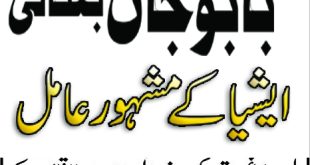Prayer, or Salah, holds immense significance in Islam as it serves as a direct link between a believer and Allah. However, there are specific times during the day when offering Salah is forbidden or disliked. This concept is essential for Muslims to understand so they can ensure their prayers are performed at the most appropriate times. In this article, we will discuss the forbidden times of prayer, why they are considered forbidden, and how this knowledge relates to Online Istikhara in Pakistan, Online Istikhara in Lahore, and Online Istikhara Services in Pakistan.
What are the Forbidden Times of Prayer?
The forbidden times of prayer are specific periods during the day when offering Salah is either not allowed or discouraged. These times are based on the movements of the sun and the guidelines of the Prophet Muhammad (PBUH). The key forbidden times include:
- After Fajr until Sunrise
- Duration: From the completion of the Fajr prayer until the sun has fully risen.
- Reason: This period corresponds to the time when non-believers used to worship the sun. To avoid any resemblance to their practices, it is forbidden to offer voluntary prayers during this time.
- When the Sun is at its Zenith (Midday)
- Duration: About 10-15 minutes before the Dhuhr prayer starts, when the sun is at its peak.
- Reason: This is when the sun is directly overhead, and ancient sun-worshipping communities considered this moment sacred. To distinguish Islamic worship from such practices, Salah is prohibited.
- After Asr until Sunset
- Duration: From the completion of the Asr prayer until the sun sets.
- Reason: Similar to the period after Fajr, this time was associated with sun worship. Thus, offering voluntary prayers during this time is discouraged.
These three periods are critical to remember for every practicing Muslim. However, obligatory (fard) prayers are exempt from this rule. For instance, if a person has missed a fard prayer, they are required to make up for it (Qada) even if it falls within one of these forbidden times.
Why Are There Forbidden Times of Prayer?
The concept of forbidden times of prayer is rooted in the Hadiths of the Prophet Muhammad (PBUH). The primary objective of these restrictions is to prevent any association with non-Islamic worship practices. In pre-Islamic times, many communities worshipped celestial bodies such as the sun, and Islam sought to distinguish its practices from those.
The Prophet Muhammad (PBUH) explicitly mentioned these periods in several Hadiths, making it clear that Muslims should avoid praying during these times unless it is an obligatory prayer or a Qada prayer.
Permissible Prayers During Forbidden Times
Although voluntary (nafl) prayers are discouraged during forbidden times, certain prayers are allowed under specific conditions. Here are some examples:
- Missed Obligatory Prayers (Qada Salah)
- If someone has missed a fard prayer, it is permissible to offer it at any time, even during forbidden periods.
- Funeral Prayer (Janazah Salah)
- If a person passes away and the funeral is ready, the funeral prayer can be performed at any time.
- Sajdah Tilawah (Prostration of Recitation)
- If a person recites or hears a verse of the Quran that requires prostration, they are allowed to perform it during any time of the day.
Relation of Prayer Timings with Istikhara
Istikhara is a special form of prayer that Muslims perform when seeking guidance from Allah in making important decisions. People often ask if Istikhara can be performed during forbidden times. Since Istikhara is a voluntary prayer, it is advised not to offer it during forbidden periods. However, one can make Dua (supplication) to seek Allah’s guidance at any time.
For those seeking guidance and unable to perform Istikhara at the appropriate time, services like Online Istikhara in Pakistan and Online Istikhara in Lahore offer a convenient solution. Through Online Istikhara Services in Pakistan, individuals can seek the help of scholars to perform Istikhara on their behalf at the right time.
How Online Istikhara Services Help
Sometimes, people cannot offer Istikhara due to their lack of knowledge about its procedure or the timing restrictions. This is where platforms offering Online Istikhara Services in Pakistan come into play. Here’s how they help:
- Guidance from Scholars: Trained scholars perform Istikhara on behalf of individuals.
- Availability: These services operate 24/7, allowing users to request Istikhara at any time.
- Accessibility: With just a phone call or an online form, people can seek divine guidance for critical decisions.
- Authenticity: Professional Islamic scholars ensure that the Istikhara follows the correct method as outlined in the Quran and Hadith.
To access these services, you can reach out to Online Istikhara in Lahore or Online Istikhara in Pakistan by visiting onlineistikhara.com.pk or calling +92-3217612263.
FAQs
- What are the three forbidden times for prayer?
- After Fajr until sunrise, at midday when the sun is at its peak, and after Asr until sunset.
- Can I offer Qada prayers during forbidden times?
- Yes, Qada prayers (missed obligatory prayers) can be offered at any time of the day.
- Is Istikhara allowed during forbidden times?
- No, since Istikhara is a voluntary prayer, it is recommended not to offer it during forbidden times.
- Can I make Dua during forbidden times?
- Yes, making Dua is permissible at any time of the day.
- What should I do if I miss an obligatory prayer?
- You should offer the Qada prayer as soon as possible, even if it falls within forbidden times.
- Why are certain times forbidden for prayer?
- To distinguish Islamic practices from those of sun-worshippers and ensure clear guidelines for Muslims.
- Can I pray Tahajjud during the forbidden time after Fajr?
- No, Tahajjud should be completed before Fajr begins.
- Can I perform Sajdah Tilawah during forbidden times?
- Yes, Sajdah Tilawah is allowed at any time.
- What is the best time to perform Istikhara?
- The best time for Istikhara is during the night after Isha or before Fajr.
- How can I access Online Istikhara Services in Pakistan?
- You can visit onlineistikhara.com.pk or call +92-3217612263.
Conclusion
Understanding the forbidden times of prayer is essential for every practicing Muslim. These times are based on the guidance of the Prophet Muhammad (PBUH) and help distinguish Islamic practices from other religious customs. The three primary periods to avoid are after Fajr until sunrise, at midday when the sun is at its peak, and after Asr until sunset.
If you’re unsure about Istikhara, platforms like Online Istikhara in Pakistan and Online Istikhara in Lahore offer valuable guidance. They ensure that you can seek Allah’s direction through authentic methods. For those in need of assistance, Online Istikhara Services in Pakistan are readily available to help with timely guidance. Contact them via onlineistikhara.com.pk or call +92-3217612263 to get started.



 Online Istikhara Love Marriage Specialist
Online Istikhara Love Marriage Specialist



